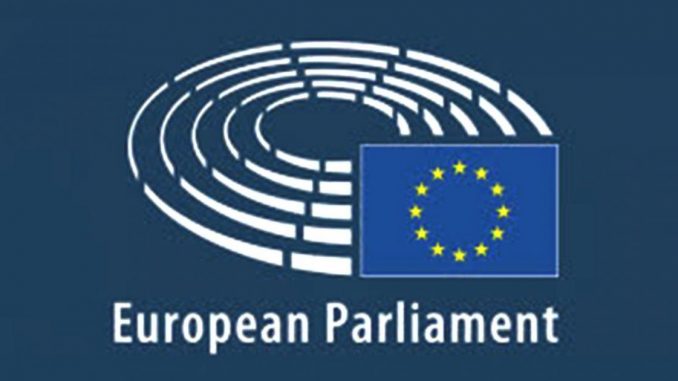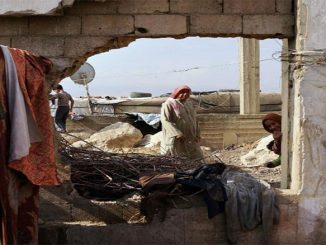
The European Parliament issued a resolution on executions in Egypt on 8 February, expressing concerns that “strict procedures are in place within the country’s legal system in cases where the death penalty is applicable.”
The European Parliament highlighted what it called a “significant rise in the number of people sentenced to death in Egypt since 2014,” referring that at least 2,116 individuals have reportedly been sentenced to death in Egypt, including 186 persons in 2017; whereas 846 of these sentences were reportedly handed down without the defendant even appearing in court.”
It added,”Whereas no death sentences were approved under former Presidents Mohamed Morsi and Adly Mansour; whereas at least 81 executions have been carried out since 1 January 2014.”
The EU Parliament resolution also mentioned that all recent and imminent executions reportedly resulted from “trials that failed to uphold fair trial and due process rights; whereas the UN Safeguards Guaranteeing Protection of the Rights of Those Facing the Death Penalty strictly prohibit the application of the death penalty following unfair trials.”
It also mentioned that “at least 38 individuals who were under the age of 18 at the time of their alleged offence have been tried alongside adult co-defendants on charges that carry the death penalty.”
The Egyptian courts have recommended initial death sentences for at least seven such individuals; which,in practice,violates Article 111 of Egypt’s Child Law, as well as the UN CRC.
The military trials against civilians was also highlighted by the resolution, saying “The practice of military trials against civilians drastically increased under the current leadership in place since the coup d’Etat of June 2013.”
From October 2014 to September 2017, “Over 15,000 civilians were referred to military prosecutors, including dozens of children; whereas military courts have issued over 60 death sentences against civilians since July 2013.”
Moreover, the resolution mentioned the phenomena of enforced disappearance and torture in Egypt.”The Egyptian civil society organizations and United Nations monitors have repeatedly expressed their concern at the use of enforced disappearance, torture and military trials in cases that ended in death sentences, yet which manifestly did not meet fair trial standards.”
It also added that UN Committee against Torture stated in June 2017 that “torture is a systematic practice in Egypt.”
The EU legislative body also demanded that Egyptian defendants facing the death penalty be afforded “full access to legal representation and a fair trial in accordance with accepted international standards,” and condemned “the use of the death sentence to suppress opposition.”
It also added that the overall human rights situation in Egypt remains “deeply problematic”; saying that “the crackdown on terrorism has also been used as justification by the Egyptian authorities to conduct a large-scale and relentless campaign of arbitrary detention, harassment, intimidation, enforced disappearance and censorship against government critics, including journalists, human rights defenders, lawyers and political opponents; whereas perpetrators enjoy a climate of near-total impunity.”
In the same context, the European Parliament also recalled in the resolution”its continued outrage at the savage torture and killing of Italian researcher Giulio Regini and denounces, once again, the lack of progress in the investigation into this brutal murder.”
Giulio Regeni, the Ph. D. student who was doing postgraduate research into Egyptian trade unions, disappeared on the fifth anniversary of January Revolution.The Cambridge University student’s body was found brutally tortured in a roadside ditch on the outskirts of the Egyptian capital, on February 3, 2016. His mother said that she could only recognize him by his nose.
Torture found on Regeni’s body showed the signs of Egypt’s security forces which are known for using violence against detainees to gain information and confessions.
It also stressed that “it will continue to press the European authorities to engage with their Egyptian counterparts until truth is established on this case and the perpetrators are held accountable.”
The EU parliament also called on the Egyptian government to issue an immediate and open invitation to the UN Special Rapporteurs on Torture, on Extrajudicial, Summary or Arbitrary Executions and on the Promotion and Protection of Human Rights while Countering Terrorism to conduct a country visit.
Regrading human rights situation in Egypt, the resolutions reads “Remains deeply concerned by the overall human rights situation in Egypt, notably the generalized crackdown against civil society organisations, the continued police and military brutality, the harassment, the mass arrests.”
It also added its concern over the “systematic torture and abuse in places of detention and the sham criminal proceedings against hundreds of individuals, from all political backgrounds, solely as a response to their peaceful exercise of their fundamental freedoms or their expression of dissent.”
It also called on the Egyptian authorities” to strictly uphold the unequivocal constitutional guarantees in relation to these freedoms.”
In response, the Egyptian Parliament’s foreign affairs committee issued a statement strongly rejecting a resolution by the European Parliament on executions in Egypt, warning that the use of human rights matters to place restrictions on Egypt must stop, according to al-Ahram(State-owned newspaper)
Tarek Radwan, the head of the foreign affairs committee, said in the statement that the resolution reveals an “ignorance of the real conditions in Egypt,” and that it is a violation of the principle of non-intervention in the internal affairs of other countries.
“Egypt has the full right to choose its legal and judicial system,” the statement read.
“Imposing concepts that are incompatible with other societies’ prevailing social and cultural values is an act of arrogance,” the committee added.



